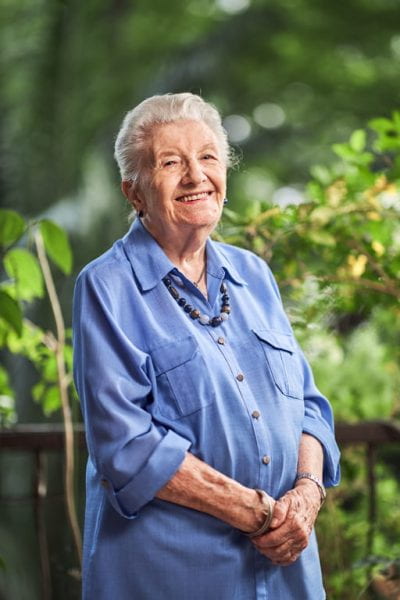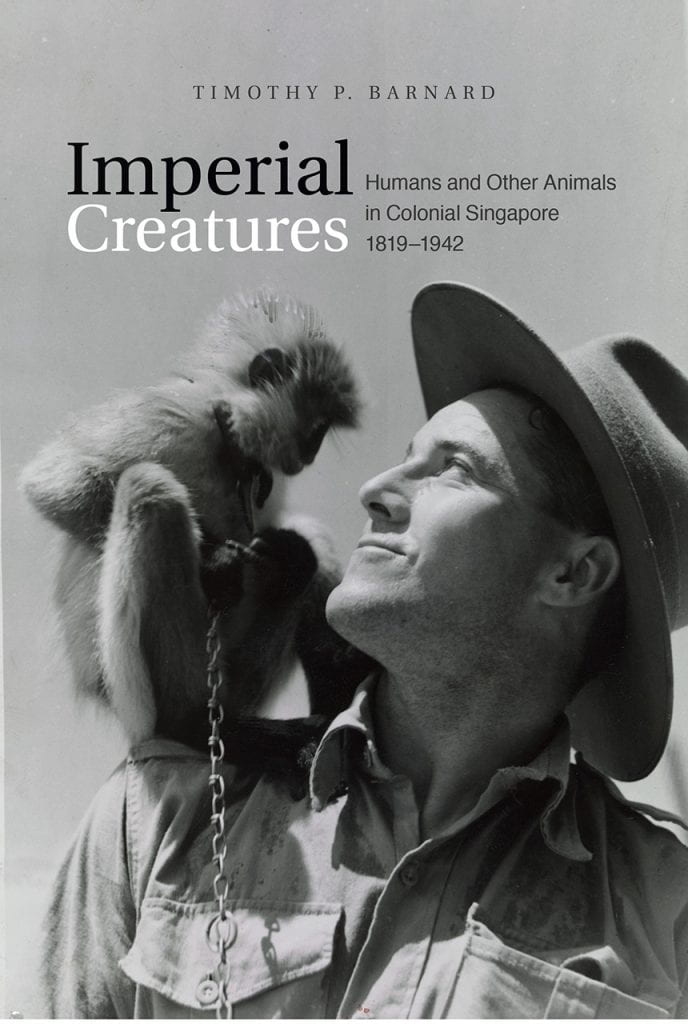
Mrs Ann Elizabeth Wee
Associate Professorial Fellow
NUS Faculty of Arts and Social Sciences, Department of Social Work
1926 – 2019
Often described as the founding mother of social work education in Singapore, Mrs Ann Elizabeth Wee passed away in Singapore on 11 December 2019. She was 93 years of age.
Born on 19 August 1926 in Corbridge, United Kingdom, Mrs Wee arrived in Singapore in 1950 to be reunited with her fiancé whom she met at Cambridge. Mrs Wee’s career in social work spans six decades. After a four-year stint at the Methodist Girls’ School, Mrs Wee joined the Social Welfare Department in 1955. To better communicate with and advocate for her clients amongst low income families, she picked up Malay, Cantonese and Hokkien on the job. At the same time, Mrs Wee began part-time teaching at the then University of Malaya.
In 1957, Mrs Wee began teaching full-time at the Department of Social Work, and formally assumed headship of the Department in 1967, a role in which she served until her retirement in 1986. As the Department’s longest serving Head, Mrs Wee was the driving force behind the University’s decision to introduce a full-fledged Honours Degree programme, paving the way for social workers to be recognised as professionals, enjoy better career prospects, and gain access to policymaking. To impart her knowledge to future generations of social workers, Mrs Wee further co-authored and edited Social Work in the Singapore Context, the only textbook on social work in Singapore. In 2017, she published her memoir A Tiger Remembers: The Way We Were in Singapore, which chronicles her experiences in the Singapore of old.
Mrs Wee’s contributions extend beyond the academic sphere and she served on panels that traversed demographics and issues. In addition to being appointed on the Advisory Panel to the Juvenile Court for nearly four decades (1970 – 2009), Mrs Wee also served a term on the Tribunal for the Maintenance of Parents; as an advisor on women’s and girl’s issues with the Ministry of Social Affairs; on the board of governors of the National Youth Leadership Training Institute; and several other boards and committees.
Mrs Wee was bestowed with the Public Service Star in 1972, and again with the Public Service Star (Bar) in 2004. Inducted into the Singapore Women’s Hall of Fame in 2014, Mrs Wee’s public awards further include The Most Outstanding MCYS Volunteer Award (2004), Meritorious Service Medal (2010), and NUSS Distinguished Member Award (2012). Notably, Mrs Wee was also the inaugural recipient of the Lifetime Volunteer Achievement Award, presented by the Ministry of Community Development, Youth and Sports in 2009. She was also conferred the FASS Distinguished Arts and Social Sciences Alumni Award and the NUS Distinguished Alumni Service Award in 2019 in recognition of her lifelong dedication and contribution to social service and education.
In celebration of Mrs Wee’s lasting contributions, the Department of Social Work established the Ann Wee NUS Social Work Alumni Award in 2014, during the Faculty’s 85th Anniversary celebrations. The latter award is presented in her honour by NUS to recognise excellence in social work.
Mrs Ann Wee is survived by her two daughters and 4 grandchildren.

